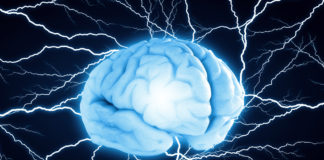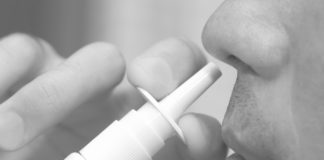Tag: treatment resistant depression
Half of Those Who Take Antidepressants Are Labeled “Treatment Resistant”
Millions of people are trying multiple antidepressant drugs without success, and psychiatry labels them “treatment resistant.”
It’s You, It’s Not Me: Treatment Resistant Depression and the Psychiatric...
"Treatment resistance" is best explained not as a medical issue but as a way for psychiatry to resolve cognitive dissonance.
The Spravato Controversy: A Row Over the Drug’s Efficacy Compels...
The UK's drug regulator rejected Janssen's esketamine nasal spray. Why did the US FDA approve it?
Too Good to Be True: How TMS Damaged My Brain
TMS not only has not improved my mental health, but also has robbed me of some of the most important things in life. There has been little to no research on or awareness around the negative side effects that TMS can inflict. This must change.
Are Regulatory Bodies Prioritising Drug Company Interests Over Public Safety?
The UK’s Medicines & Healthcare Products Regulatory Agency is refusing to respond to the concerns of psychiatrists, parliamentarians, patients and other experts about the impending licensing of the street drug ketamine as a treatment for depression.
Therapy Gets More Effective Over Time While Antidepressants Decrease in Effectiveness
New review of long-term depression data finds psychotherapy more effective over time whereas antidepressants decrease in effectiveness.
Risk of Depressive Relapse Three Times Higher After Previous Antidepressant Use
A new study found that having been prescribed an antidepressant previously was associated with an increased risk of depressive relapse.
Combining Mirtazapine with Existing SSRI or SNRI Does Not Improve Depressive...
Study finds combining mirtazapine with an SSRI or SNRI is not clinically effective for improving depression in primary care patients who remained depressed after taking an SSRI or SNRI.
Transcranial Magnetic Stimulation No Better Than Placebo for Treatment-Resistant Depression
A new study in JAMA Psychiatry found that transcranial magnetic stimulation was no better than placebo for treatment-resistant depression.
Increasing Antidepressant Dose Does Not Improve Outcomes
A systematic review of literature and meta-analysis indicates that there is no clinically or statistically significant effect of antidepressant dose increase after nonresponse to initial treatment.
Scientists Clarify Risks of Augmenting with Antipsychotic Medications for Depression
The researchers found that while antipsychotic drugs may be slightly more effective than alternative antidepressants, they come with a much higher side effect burden.
Could ‘Treatment Resistance’ be an Effect of Antidepressants?
Previously taking antidepressants could make individuals less likely to respond to treatment for bipolar II depression.
My Response to the FDA’s ECT Rule Change
I lived through forced ECT from 2005-2006 at the Institute of Living in Hartford, Connecticut. My experience with ECT was the impetus for me to become involved in the antipsychiatry and Mad Pride movements, although I am not entirely opposed to voluntary mental health treatment. The following is the comment I submitted to the FDA on its proposal to down-classify the ECT shock device.
Comments by Shock Survivors and Their Loved Ones
The #FDAStopTheShockDevice petition has received over 2,200 signatures and 800+ comments. A more thorough analysis of those comments is forthcoming, however, we wanted to offer a glimpse of what people shared. The sixth, seventh, and eighth most common words used in the comments submitted through the petition were "damage," "barbaric" and "torture." We must continue the fight to make sure that the FDA hears the people who will be adversely affected by the proposed rule if it becomes an order. There is still a small window of time for you to sign the petition and leave a comment to the FDA.
Only 72 Hours Left to Say #FDAStopTheShockDevice
As part of the effort to stop the down-classification of the shock device, on March 24, 2016, people who are psychiatric survivors, shock survivors, allies, and MindFreedom International members sent a 47-page public complaint to the FDA Ombudsman Office and Medical Devices Ombudsman concerning the FDA's attempts at down-classifying the shock device. Here are some excerpts. Please sign the petition and add your support to our growing strength!
40 Days to Tell the #FDAStoptheShockDevice
Please join us in demanding that the FDA stop the shock device from being down-classified to a Class II device. We have until March 28th, 2016.
Dr. Nardo’s Series on Use of Antipsychotics for Depression
On his website, Dr. Nardo details the hidden risks and bad science behind the growing practice of using atypical antipsychotics to augment antidepressant treatment for severe depression. The story of Atypical Antipsychotic Augmentation of Treatment Resistant Depression is a “prime example” “to illustrate how commercial interests have invaded medical practice.” “Besides the obvious dangers of the Metabolic Syndrome and Tardive Dyskinesia, these drugs don’t really do what they’re advertised to do – make the antidepressants work a lot better.”
Despite “Flurry of Interest,” Ketamine Remains Unproven For Depression
In 2014, then National Institute of Mental Health (NIMH) director, Thomas Insel, speculated that ketamine “might be the most important breakthrough in antidepressant treatment in decades.” A recent review of the research suggests that while ketamine may produce a rapid short-term improvement in depression, the effect is short-lived and the potential for addiction and dependence warrants considerable caution.
Benzodiazepines Linked to Treatment Resistant Depression
Prior use of benzodiazepines, such as Xanax, Librium, or Ativan, may increase the risk of treatment-resistant depression (TRD), according to a new study published in The Journal of Nervous and Mental Disease.





















